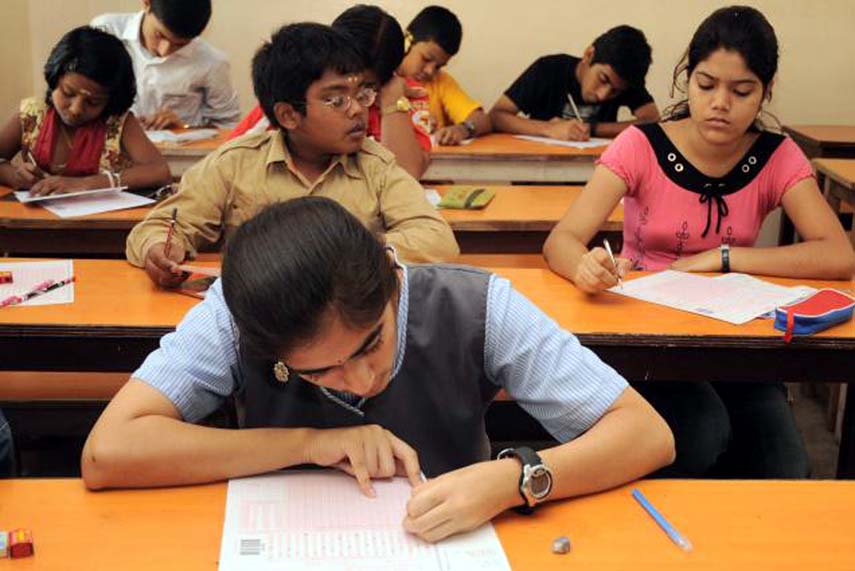
A very gradual shift away from caring only about exam results
World Bank Feature Story
A regional network of educationalists is thinking about placing more emphasis on assessing school students as they learn
Focusing on giving students more feedback in the classroom seen as one of the key needs
Applying data from large-scale assessments on the quality of education to policy making is viewed as another gap to be addressed
Concerns grew about the overall quality of education in the Middle East and North Africa (MENA) in 2007 and 2011, when most of the MENA countries that had participated in international assessments-like the Trends in International Mathematics and Science Study (TIMSS)-scored below countries from Latin America or Europe and Central Asia, and well below countries from East Asia.
Up until then, policymakers in the region had linked national education to national interest and kept it off-limits to outside scrutiny or regional cooperation. This attitude changed with the realization that the poor TIMSS results reflected problems serious enough to require a new and different approach.
In 2010, a call for action was made by all MENA Ministers of Education in the Doha Declaration for Education Quality. If the region faced comparable challenges in terms of the quality of its education, it stood to reason that it should face these together. Much could be gained from collaborating. This was the start of the Arab Regional Agenda for Improving Education Quality (ARAIEQ), a network the World Bank developed with the Tunis-based Arab League Educational, Scientific, and Cultural Organization. The network brings together specialists who hold workshops and draft reports on regional issues from their specific perspectives. Its five pillars-Assessment, Early Childhood Development, Curriculum, Innovation and ICT, Teachers and Entrepreneurship-are recognized as key for contributing to quality.
The advantages of cooperation were demonstrated at the Arab Program for Educational Evaluation and Policy Analysis (APEEPA) meetings in Kuwait in November.
The first event of its kind in MENA, it was well-attended by about 85 policymakers and specialists from governments across the Arab world, including Mauritania, Somalia, and the Comoros Islands. International organizations such as the World Bank, the UN’s educational fund UNESCO-Paris, the International Association for the Evaluation of Educational Achievement (IEA) and Organization for Economic Cooperation and Development (OECD), also sent representatives.
Assessing students in the classroom to help modernize education in MENA
The meeting’s main aim was to present the findings of a new report-the Regional Mapping Report on Assessment in the Arab States (forthcoming)-which draws together country reports using comparative data from the Bank’s assessment of student performance systems.
The report lays out education policies and practices in 17 MENA countries. It finds that, all too often, the emphasis in education in MENA is placed on national, end-of-cycle exams, and on traditional academic subjects, like algebra and grammar.
To date, little use has been made of classroom assessments-designed to offer students useful feedback-or of international testing and other assessments, the data from which could be used to feed into to national policy making and improvements in schooling.
Its conclusions tie in with those in the 2013 MENA report Jobs for Shared Prosperity, where the “logic of selection”-manifested in the rigid tracking of students early on in secondary school education and the central role of high-stakes exams-dominates MENA educational systems instead of the “logic of learning.”
Efforts to create a knowledge economy-and a knowledge-based society through education-are being blocked by a tradition of national examinations that is proving very difficult to change.
In other words, the region would do better moving away from overly selective educational systems, where years of learning are reflected in a single set of summative results or exams. Instead, it could make more use of formative assessments to help students, teachers and school managers understand what students have or haven’t learned as they are learning.
The other troubling issue that emerged from the Kuwait meetings was the over-emphasizing of the importance of subjects like algebra, geography and grammar, at the expense 21st century skills-considered essential for modern students to learn-such as problem solving, group co-operation, and technological literacy, and governance.
These findings will help define what the future of education development in MENA should be. Broad agreement was reached in Kuwait on developing a roadmap for collaboration on these and other aspects of improving student assessment in the region.
Providing more classroom feedback is the first gap that needs to be addressed; it should include drawing-up teacher guidelines on performance standards and how to better evaluate classroom learning. Embracing the meaning of large-scale assessment results is another gap; communicating these results needs to be encouraged to help policy makers and teachers.
World Bank Feature Story

